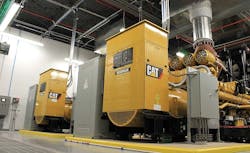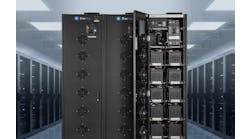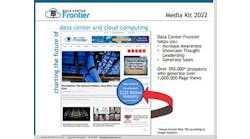North Carolina has built a reputation as a destination for large, single-tenant data centers from companies like Apple, Google and Facebook. But how about large multi-tenant facilities?
Sentinel Data Centers is building its case for the Research Triangle region as a hub for wholesale data center space, where companies lease plug-and-play data halls from service providers. After filling the 100,000 square foot first phase of its NC-1 data center in Durham, Sentinel has begun a major expansion that will add 120,000 square feet of space and 10 megawatts of critical load.
Sentinel has pre-leased part of the capacity in the Phase II expansion, and intends to bring the addition online in the summer of 2016.
“This expansion marks another significant milestone for our NC-1 facility,” says Todd Aaron, Co-Founder of Sentinel Data Centers. “The acceleration of demand we are seeing further validates NC-1’s value proposition of unparalleled quality matched with best-in-class occupancy economics.”
Sentinel says its success in Durham validates its belief that North Carolina can develop into a hot market for wholesale data center suites, competing with Northern Virginia for customers seeking data center space on the East Coast.
“Sophisticated users are continuing to take notice of North Carolina’s material cost advantages over Northern Virginia and all other East Coast regions,” said Josh Rabina, co-founder of Sentinel Data Centers. “Our NC-1 facility provides one of the best value propositions for large users in the country.”
Building on a Tech Tradition in Research Triangle
The Research Triangle Park area of North Carolina has long been an active market for technology firms. Renowned for its nexus of universities – including Duke, North Carolina and N.C. State – the area is also home to a thriving technology economy, including major data centers for IBM, Cisco, EMC and NetApp. The multi-tenant market in Research Triangle has historically been dominated by regional colocation providers like Peak 10, Data Chambers and Hosted Solutions (now part of Tierpoint), operating modest-sized facilities in the range of 15,000 to 50,000 square feet.
North Carolina boosted its data center profile between 2007 and 2010, as aggressive economic incentives helped the state win huge projects from Google, Apple and Facebook. The three tech titans set up shop in the area west of Charlotte, taking advantage of cheap power and land, and lots of it.
Wholesale data center providers saw an opportunity in North Carolina, believing the state’s attractive economics would lure customers with larger space requirements. In 2012 both Compass Datacenters and Sentinel announced plans to build multi-tenant data centers near Durham, hoping to build business in the Research Triangle tech corridor.
Compass announced a 22,000 square foot facility, which was quickly leased to Windstream. Sentinel decided to build bigger, planning a 420,000 square foot project with a first phase of 100,000 square feet – significantly larger than previous multi-tenant projects.
The exterior of the Sentinel Data Centers NC-1 facility in Durham, North Carolina. Sentinel is expanding the facility, adding 10 megawatts of capacity. (Photo: Sentinel Data Centers)
Sentinel liked Research Triangle’s concentration of life sciences, pharmaceutical and healthcare firms, a profile similar to central New Jersey, where Sentinel operates a data center campus. Aaron believed a large-footprint wholesale offering would provide an attractive option for companies that would otherwise build their own data centers.
The cost of power from Duke Energy can run as low as 4.2 cents per kilowatt hour. In January, Sentinel qualified for North Carolina’s recently passed Data Center Infrastructure Act, which provides tenants with sales tax exemptions on IT and data center equipment, as well as on electricity. The new legislation lowered the threshold for tax incentives from $250 million in investment to $75 million, and opened the benefits to multi-tenant data centers as well as single-tenant facilities.
“We really feel good about the momentum and traction,” said Aaron. “”We think this market has the potential to compete with Ashburn over the long term.”
That’s an ambitious goal. Northern Virginia is one of the hottest data center markets, serving as home to 8 million square feet of data center space, with another 3 million square feet in the planning and development stage.
Rebooting as a Greenfield Developer
Sentinel is one of the industry’s most experienced data center developers. Founded in 2001, the company has developed more than 1.6 million square feet of data center facilities. In its early years, the company operated three data centers in Massachusetts and Connecticut, which the company sold to Digital Realty Trust in 2009 for $375 million.
Those initial sites were existing buildings that were retrofitted as data centers. In 2010, Sentinel began building again, this time opting for greenfield builds that allowed it to optimize for scalability and energy efficiency. In 2013 the company opened its North Carolina data center, and last year it added a built-to-suit facility in Rockland County, New York that is fully leased to Bloomberg.
The 100 kV substation supporting the Sentinel Data Centers’ project in Durham, N.C. The robust utility infrastructure allows Sentinel to offer variable resiliency plans to customers. (Photo: Sentinel Data Centers).
Sentinel has been among the providers that have begun to offer a variety of levels of power redundancy in its data center leases.
“We believe that one of the ways we differentiate is through flexibility”, said Aaron. “We are able to offer lower-redundancy, less expensive deployment modules alongside high-tier modules within the same four walls of a tenant’s premises, and to fine-tune the quantities of these modules to best accommodate the tenant’s specific requirement”.
“There are a few pillars to providing an attractive lower-redundancy product set, one of the most important being a best-in-class utility story. This is one of the reasons we believe in investing heavily in owned, dual-fed, transmission-voltage substations. We can point to data from Duke Energy to say that the two redundant 100kV power feeds that serve our facility have never been down contemporaneously.”






